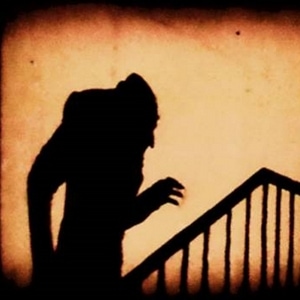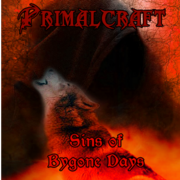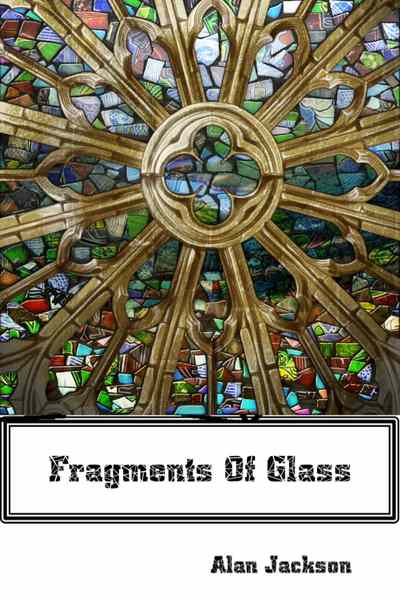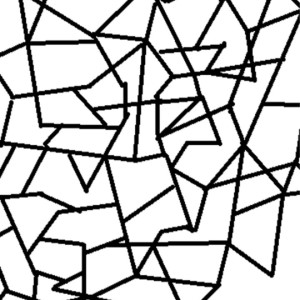Ieuan was a big lad – especially his hands and his head – but as gentle as a falling leaf. Quite literally, he would not hurt a fly, except a fly that was bothering his Mam, of course; it was the only time he was ever angry, when someone upset his Mam, and then, well, nobody did it twice. Ieuan was a very big lad.
Schoolwork was never going to be his thing; that was obvious from the start. He could talk, but reading and writing were well beyond him; he could just recognise his own name, Ieuan, and eventually he could even begin to scrawl it, but that was his limit. Anything he could do, though, especially anything to help someone, that he loved; and talking, he would talk to anyone, anyone at all who would listen – and usually people did; everybody liked Ieuan; it was almost impossible not to. Ieuan was a big lad, but he was so gentle, so happy to help, so happy to talk.
Even Dai Pen would talk to Ieuan. Dai was important; everybody said so. Dai was the head man in the village, and it was Dai that, four times a year, rode out to the Shire Council to represent the village alongside the other villages and towns. Dai knew how important he was in the village, but he also knew how unimportant the village was in the wider world. It was so difficult; everyone in the village expected Dai to fix anything that went wrong – after all, Dai was important – but Dai himself knew how little power he had; inside the village he had to get everyone to agree before anything would be done, and outside the village, well, he represented an obscure village at the end of a remote, unpaved road across the mountains, unimportant and largely forgotten. It made Dai feel so useless – and yet everyone said he was so important.
So Dai would talk to Ieuan, and tell him all this, and all about the Council, and the road, and the hills, and the things he wanted to do and couldn’t, and Ieuan would listen, and maybe understand a little bit, but be so happy to listen and to talk to Dai, that in the end Dai’s depression would lift, and he’d go away and try yet again to do something.
One thing Dai did want to fix was the road. There was only that one road in and out of the village, and it cut into the side of the hill for most of its length, climbing steadily for over two miles up to Blaen to meet the proper road from Aber to Glaswent. Because it was cut into the hill, stones and even quite big rocks were for ever falling onto it, making it hard to ride a horse there, let alone get a cart along it. It was the big problem: it made it hard for farmers to get their lambs and their wool to market, and it made it hard for traders to visit the village. It held everything back, that road. But how to clear it – and more, how to keep it clear?
Then, suddenly, Dai thought of Ieuan. Ieuan could do it. It wasn’t difficult, in the sense of understanding; Ieuan loved helping, and this was helping; could Ieuan do it? Dai spoke to Ieuan’s Mam, and she thought he could, and that he’d enjoy it – and maybe it would do him good. Dai spoke to other people around the village, and they were happy. So Dai spoke to Ieuan. Would he help pick up the stones from the road? Just from the village to Blaen – no further – would he help?
Ieuan was very happy – he could help! Yes Ieuan could help! Ieuan likes helping! Ieuan want to help!
And then Dai showed him where to dump the stones – in the old quarry by the turn to the Ros farm – and then gave Ieuan a barrow to carry the stones in. Not just lent – gave.
Ieuan’s own barrow!
Ieuan had a barrow! He’d been trusted with a barrow of his own!
Ieuan had to tell everyone, to show everyone his barrow!
His Mam even had to let him take it into his bedroom at night, because it was his barrow, and he was so proud of it.
So every day Ieuan would proudly trundle his barrow, Ieuan’s barrow, along the road, picking up stones and putting them into his barrow, Ieuan’s barrow, until it was full, then back to the quarry and tipping them in, and stopping to talk to everyone he met to show them his barrow, and tell them how happy he was to be useful, and to have his own barrow to be useful with.
And best of all, at the end of each week the village paid Ieuan a proper wage! Well, not really – it was pence not pounds, just to show appreciation – but it was enough for Ieuan to take home to give to his Mam like a proper son should. Ieuan was so proud. And so was his Mam.
And so was Dai. And so was the rest of the village – everybody liked Ieuan.
Dai still talked to Ieuan, when they met. Dai would tell Ieuan all about his problems with the village and the Council, and Ieuan would tell Dai all about his barrow, and all about going along the road trundling his barrow, and picking up stones and putting them into his barrow, and the noise they made as he tipped them into the quarry from his barrow. Then both of them would go away happier.
One day Dai happened to meet Ieuan just as he came to the old quarry, and they started talking as usual. But then Dai stopped.
“What are you doing, Ieuan?” he asked. “Why are you picking out those stones? Don’t they go into the quarry?”
“Pretty stones,” said Ieuan. “Different stones. White pretty stones with yellow in them. Ieuan like pretty stones. Don’t want to throw pretty stones in the quarry. Keep pretty stones here, in Ieuan’s special place for pretty stones.”
And Ieuan showed Dai the special place where he’d sorted out the pretty stones, and Dai looked at the pieces of white quartz with tiny veins of yellow in them, and wondered.
He wondered what the tiny veins of yellow were.
And above all, he wondered why no one else had noticed the pretty white stones with the yellow in them before Ieuan had.
“May I borrow a pretty stone, please, Ieuan?” he asked. “I’ll promise to bring it back.”
“Take pretty stone!” exclaimed Ieuan. “Ieuan give pretty stone to Dai a present! Dai give Ieuan barrow, so Ieuan give Dai pretty stone as a present!”
“Thank you,” said Dai. “You’re very kind. And very clever to have seen that these stones are pretty. No one else has noticed – only Ieuan. Thank you.”
The assay wasn’t wonderful, but it was gold, and it was enough to get a mining company interested. They opened an adit from the road, and as the custom was they called it after the mine company owner’s wife – but that wasn’t the name that stuck. Whatever the legal papers may have said, everyone, villagers, miners, mine company, everyone called it Ieuan’s Barrow.
And Ieuan continued to potter along the road with his barrow, picking up rocks, and Dai continued to talk to him, and tell him all his problems – all his new problems, now his village had suddenly become rich and important – and still everyone expected Dai to do everything, and still everyone liked Ieuan, and Ieuan’s Barrow was there to prove it.
And it still is.












Comments (0)
See all